

Pages in this Folder:

Related Folders:
See also Department Site Map
Support Provided by

Toronto Parks and Trees Foundation
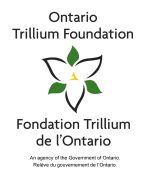
This website has received support from celos.ca through the Trillium foundation.
Publications
Comments?
For the basics, see
- Website & Privacy Policies
- How To Get Involved
- The Role of the Park
Search options:
Department Site Map
Custodians:
Laura Repo
Interview with musician and long-time friend of Dufferin Grove Park Laura Repo, Nov.9, 2021:
an (edited) conversation about Laura's experience with public space and community
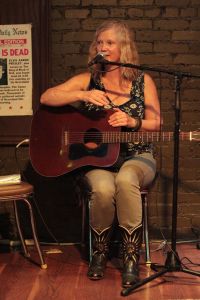
Hugh's Room. Photo: L.Middleton
The music community
Music was a big thing in our family, and I think I always wanted to recreate that feeling of music and food and basically a party, my dad at the piano. We had a family songbook that we sang from whenever we got together.
When I was thirty I wasn’t playing music, singing or writing songs. But then I started by going to blues jams. At the time in Toronto there were all these places where you could go, open mikes. Blues jams are very accessible. You don’t have to have played with a band or even know anyone. You can get on stage and say “Blues in the key of C, 12 bar, shuffle” and they’d do it. And you get to sing a song with a band. I was so amazed by the access. My song-writing came out of that. Blues jams can feel like democratic organizations. I’ve done my share of very bad blues renditions, but I didn’t care — I was more interested in learning how to use a mike and be on stage. To sing a blues tune, I didn’t have to have any experience. I’d see the same people in other parts of town too. You can get a mishmash of talent at those jams, sometimes it’s rough. But there was always that anticipation – what’s going to happen tonight? That felt to me like – oh! – this is a music community. This is how we get together. I grew my musical community from there and once I started writing songs it evolved into something else.
The café community
The Common on College Street was kind of a hub. You’d meet people every day and just randomly bump into each other, and so many conversations were taking place, about what’s going on and – oh, can you help with this thing? Or are you interested in doing that?
The music and café community
Ed, the owner of The Common café, would bring a bartender in and rent out the space very reasonably in the evenings. As soon as I found that out, I was like -- oh my god, I can put some shows on here. What I wanted to do was have a small living-room space, because I love the feeling of being that close to the musicians, a space where you can have some kind of communication with everyone. And the acoustics in that space were incredible.
It was easy. I would send a message to 20 people – I’m going to bring in a Cuban band – 20 bucks each – and that money went to the band and some to pay for the bar. But it was always pay-what-you-can – if you can’t pay, show up and we’ll fit you in. Always. The musicians each got 100 bucks. It was like a house concert but in a public space. And if people would show up late, even after the gig, we would just keep the thing going, like a party. I loved doing that. I also met the producer for my last album at The Common. Cafés can be neighbourhood hubs for political organizing and initiating artistic projects.
After a while I had a nice musical community as a musician. I’d go to a club on any night of the week and find friends to hang out with or play a gig somewhere. The music was important, but maybe not as important as just being with people – it was the extended family I was looking for. But I discovered after having Sami that I was suddenly not part of that community in the same way -- I couldn’t participate in the late-night gigs.
The music and parents community
The first thing I did was take my son Sami to afternoon gigs like at The Communist Daughter, on Sunday afternoons, where John Borra and Screamin’ Sam had been doing a residency for years, from 5 to 8. It was kind of like going to church. And now? I mean, everyone knew the songs, and we’d come week after week, and sing along with them. Sami would practice the banter he heard between John and the customers, at home on a makeshift stage.
The Little Folk Festival
I set up the Little Folk Festival in 2003, at Dufferin Grove Park. I wanted to acknowledge musicians who were parents. For parents who couldn’t get to late night shows, it made sense to have music in the middle of the day in the park because you were there anyway playing with your kid. We set the stage up right in the playground, in the gazabo, so parents could even listen while they watched their kid on the swings – that was the idea.
I have such great memories of that day in August. I got my friend Adam to look after the sound and he asked one of his friends to help him. We borrowed cables for the sound stage. I threw together a roster of parent musicians. I think we collected money from the crowd by passing the hat. We had snacks for the musicians and volunteers — then a Samba band showed up and I think they ate most of our food! One great memory I have from that day was when my dad showed up first and set his chair up on the grass in front of the gazebo. It was a magical day, how it all came together, with the park volunteers and neighbours staying for the music. Sami’s dad made the posters — I think that’s how we got the word around. The only thing I forgot to do was organize volunteers to help pack everything up. I remember hauling big cables after my set.
I wish I could have made it an annual event, but I had too much on my plate.
The school community: the piano project
After the park folk festival, I would have these little eruptions of “oh! Here’s something that I could do!” and I’d try to figure out a way to it. I did something I called “the piano project” at Sami’s school. A school is a kind of public space. I wanted to contribute in a way that made sense to the community as opposed to what the principal wanted from parent volunteers – sitting in a classroom cutting out squares for the kids.
What I wanted to offer them was a way of giving kids a musical experience without a teacher there going, “okay, now play this, no don’t…”? A piano is a good instrument for that. At Sami’s school there was a piano was on the stage, collecting dust, only pulled out for assemblies, so the music teacher could play it. I wanted to get it down into the auditorium so it was really accessible. That’s also where the kids had lunch. I thought, well, while the lunch supervisors are there, the kids can have a turn at the piano. But the puzzle was, how to do it without having a mob scene at the piano. It was actually Sami who came up with the solution — this can work in a small school. There were maybe ten lunch tables. Each day one table would get to go: “after you wash your hands, you can have a turn on the piano.” The important thing was to not have too many rules. Some kids would do a song, others would just be noodling around. And then the next person got to their turn. One of the kids would be the piano monitor: “okay, you’ve been on too long.” But there wasn’t any rule about what you could play. Kids were teaching each other songs. The piano became a part of their lives in that stretch of time. I heard reports from parents, like, oh, today somebody was playing a theme from a movie. Adele was big back then. And then somebody else would learn the Adele song. It was amazing collaborative learning. The whole thing was about, “how do we get our hands on the piano?”
Communal writing: Write on Mama!
I started a mothers’ writing group at The Depanneur in 2012. The group was originally called “writing through the twilight zone.” I told my doula friends that I was starting a writing group for mothers, put up posters in the park and on bulletin boards and telephone poles. Soon I changed the name to ‘Write on Mama,’ because I wanted the messaging to be very clear and the group had outgrown the ‘twilight zone’! It started out as a PWYC or $5 fee, going up to $10 — plus they would buy a cup of coffee and that helped the café too – on a weekday there would be people to fill some seats. Plus I was making granola at the time, for The Depanneur, so I’d serve my granola, or they’d have a sandwich. The first year we had a dedicated group, sometimes four or even up to eight mothers and there were always kids involved.
This was a creative writing group, not a therapy group. It took some trial and error to figure out what we all wanted out of our time together. I was trying to make a space for mothers to have a creative practice, or even just have some time alone to think. If people wanted to talk, the group could stay afterwards and hang out. Mostly, though, people seemed to want to use the time to write and share their writing with the group. I’d come with a list of writing prompts to give the group some focus. A lot of times people would show up feeling sleep-deprived and in a fog, but when they’d start to write, they’d find that the things they were observing are not small things – that the motherhood experience gives you lots to write about. I tried to make it so that people could come and go – they could bring their computer and work on a thesis or a letter they had to write. But afterwards we would always come together and that would be the way to connect, through the writing.
After The Depanneur got busier we bounced around from café to café, and eventually landed at Artscape Youngplace on Shaw Street. It had lots of potential with the Early Years Childcare in the basement. They even had babysitters for hire. I tried to promote that and brought in teens to help with kids too, so their moms could write. We tried to get a grant to use the community room at St. Anne’s Church, but it didn’t come through. And then we had to stop the kids from coming — that broke my heart. But mothers who were taking time away from their kids to write found it hard to focus. So we ended up saying only babes in arms could attend. That seemed to work better. At Artscape Youngplace, I got guests from the community who would volunteer – professional writers and poets – they would run their own writing session for us. It was really uplifting for me and I ended up writing a lot too (including songs for my 2019 album).
We used Ed’s café The Common for a kind of wrap up night at the end of a year of writing. I invited the mothers to come to an evening, some would bring their baby, but not the older kids. We would use the space for a writing session and then we might have an open mike. People would have a chance to read their work publicly. It was nice because the bar was open, serving alcohol, which made everyone feel like it was a social night out.
The writing group, and the friendships, were building. We had just relocated to Field Trip Café, near Bloor and Dovercourt — which was really working out well. It was like we found our spot finally. Our last session happened on Wednesday of March 11, 2020, just before the door slammed shut for two weeks to flatten the curve.
Community in the time of Pandemic I tried one online session in April 2020, but everyone was so spooked by the virus that it was hard to facilitate it. I decided I needed time to figure out what was happening and not rush getting the group back together. Eventually I took the writing group online in Dec. 2020. I really felt I wanted that community to happen again. By then I had a FB group set up, so it was easy to invite the group back. We also got a few people from the listserv.
Between December 2020 and June 2021 the group met online once a week, with a guest for one of those sessions. It really helped all of us to manage the enormously difficult lockdown days, with school and work being online. But some mothers wouldn’t come because they had spent too much of the day online already — so it wasn’t ideal for everyone. Sometimes the pandemic came up as a topic to write about because people were really struggling. But, we also did writing prompts that had nothing to do with the pandemic, which was a relief at times.
But then everything shifted again. So now I have this writing group but it’s still really hard to write honestly with the group about the pandemic and how it’s impacted our lives. It has so many parts to it — especially the way communication has broken down inside our community. The censorship and shaming has been very hard, and the demonizing of the unvaccinated has escalated. I’ve noticed how much harder it is to raise it as a topic in the wider community. It’s become really very clear to me that it is not acceptable to speak in any critical way about Covid — for instance about kids’ vaccinations. I want to have public conversations, and to write about them. Some of the mothers may not be coming back to the group because they’ve heard me speak out about it.
How is this pandemic censorship and polarization impacting our writing group? I’d like to address it head on, but I haven’t figured out how to do it so far. The hope is that as a writing group we can come together and take a break from disagreements and just connect in the human way we always have. That seems to hold some promise.


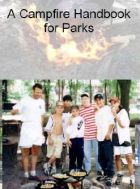
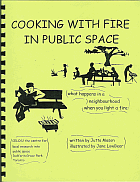
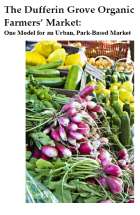
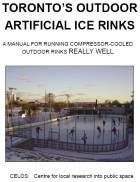
 Printer friendly version
Printer friendly version